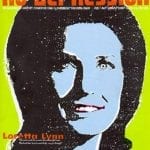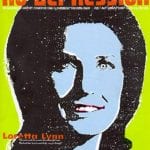Tim O’Brien – Time After Time
Tim O’Brien compares his flare for blurring the lines between new and old music to, well, vegetables. Like a musical chef, O’Brien pinches from one genre and drops it in another, creating a succulent dish of traditional and modern forms. “It’s the same effort of trying to make old and new music stand beside each other and be congruous,” explains the amateur chef. “It’s like there are no new vegetables, but it’s a different dish.”
The self-taught multi-instrumentalist, equally facile on mandolin, guitar, fiddle and bouzouki, has earned Grammy nominations, won awards from the International Bluegrass Music Assocation, and had chart-topping songs. His talents have been courted by everyone from Steve Earle to Dwight Yoakam, Robert Earl Keen to Garth Brooks. “I don’t know what it is. I wish I knew,” he says humbly. “But I’m glad some people think that I’m just trying to do the best I can.”
O’Brien’s new album with musical compadre Darrell Scott, Real Time (on O’Brien’s own label, Howdy Skies), is another of the West Virginia native’s successful experiments in juxtaposing old and new. Stripped down to its basics, and recorded in Scott’s home, the album takes on almost human qualities: it breathes on the tender, airy ballad “More Love”; it cries on “Walk Beside Me”, O’Brien’s homage to a late friend and bandmate; and it shouts with an uncontainable spontaneity on “Second Mouse”, a song recorded in the living room that features everything but the kitchen sink — mandolin, bouzouki, guitar, kazoo, toy fiddle, dinner bell and slide whistle.
The duo spent about a week at Scott’s house, a two-story A-frame with a corrugated tin roof, picking in the living room while microphones hung high overhead. “We cut out all the processing and the distance between the audience and the performer,” O’Brien explains. “We want to get right to where you’re sitting beside someone playing the music.”
The album’s varied fare includes a stirring a cappella version of Hank Williams’ “A House Of Gold” and a raucous rendition of the traditional number “Little Sadie”, which includes some lightning pickin’ and a solo by percussionist Kenny Malone, who dropped by Scott’s house with his “beast” (a wooden box with various appendages). “Darrell didn’t get my eyeball cue, so Kenny plays the solo,” laughs O’Brien. “And that worked out great.”
The sweet ballad “More Love” contrasts with the racier “Helen Of Troy, Pennsylvania”, a song about an older divorcee seducing a couple of teenage boys. Again, as O’Brien has done since his days in Hot Rize, he mixes old and new musical forms, at times a difficult marriage. Several cuts, including a fiddle instrumental and a honky-tonk country song, were sacrificed for the sake of retaining the album’s proper vibe and tone.
“Doing Hank songs and doing my own stuff, they don’t mesh,” he explains, “whereas this does. It’s the simple instrumentation, maybe.”
Old and new music draw a continuous line on “With A Memory Like Mine”, a story about a father who loses his sons to the war. Scott’s father started the lyric in 1964. Thirty-six years later, Darrell added a verse and a melody the night before it was recorded.
Fittingly, Scott’s banjo drives the lyrics: “I told my son to be a good soldier but return again someday/He was returned just one year later, Lord I’ll not forget that day/The baggage car is where he traveled, in a casket where he lay.”
Several songs, including the plaintive “I’m Not Gonna Forget You”, serve as outlets for O’Brien’s grief about the death of former Hot Rize guitarist Charles Sawtelle, who succumbed last year to leukemia. The traditional “Keep Your Lamp Trimmed And Burnin'” takes on extra meaning, as does the gorgeous “Walk Beside Me”: “I saw you in the Rocky Mountains, I felt you on the great North Sea/It’s a lonesome road I have to travel, but you will always be with me.”
“Thematically it was putting to bed losing my friend Charles,” O’Brien says sadly. “‘Keep Your Lamp Trimmed And Burnin’,’ I used to sing it with Charles. And ‘A Memory Like Mine’, there’s a lot of death and misery and desperation in there. That’s why I liked doing ‘Second Mouse’ and ‘More Love’; they are a little lighter. It addresses being lost in the world, but at least there’s an answer.
“Every place I’d go for a year after he died was a rolling tribute to Charles, so it was weird for a long time,” adds O’Brien. “I felt like he’s still here with us. We know that he’s inside us now instead of standing beside us. Then the time comes when you stop talking about him and it’s time to get on with things. That’s what those songs are about. We have to get on with life, but we’re not forgetting you. We’re all walking down the road and let’s get through it.”




